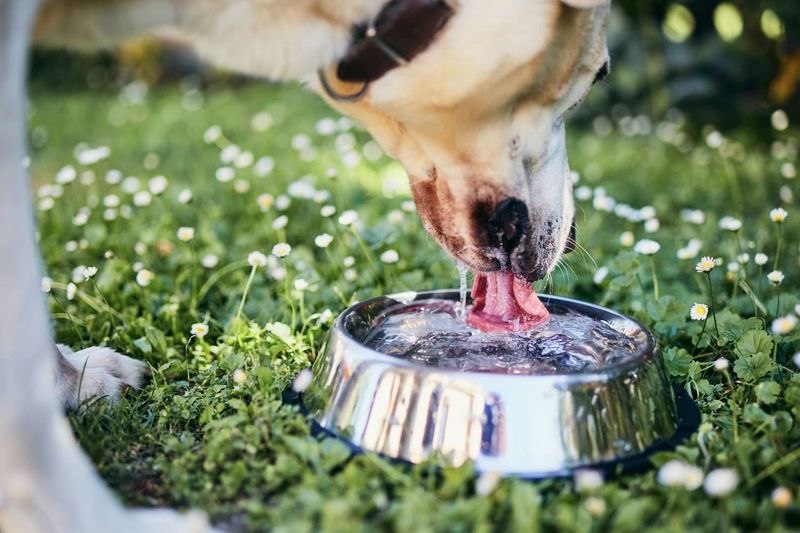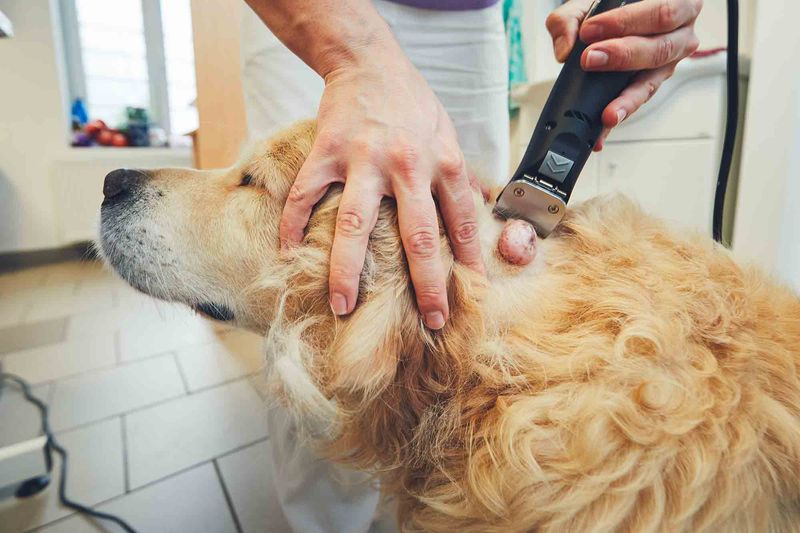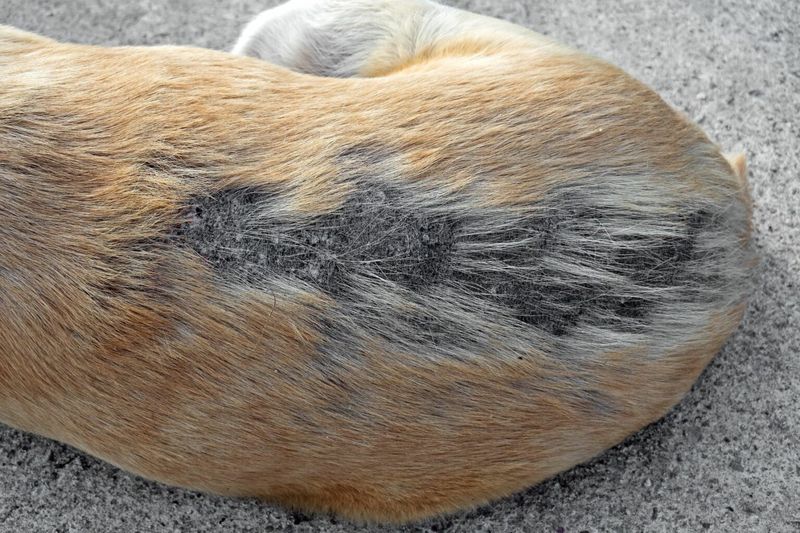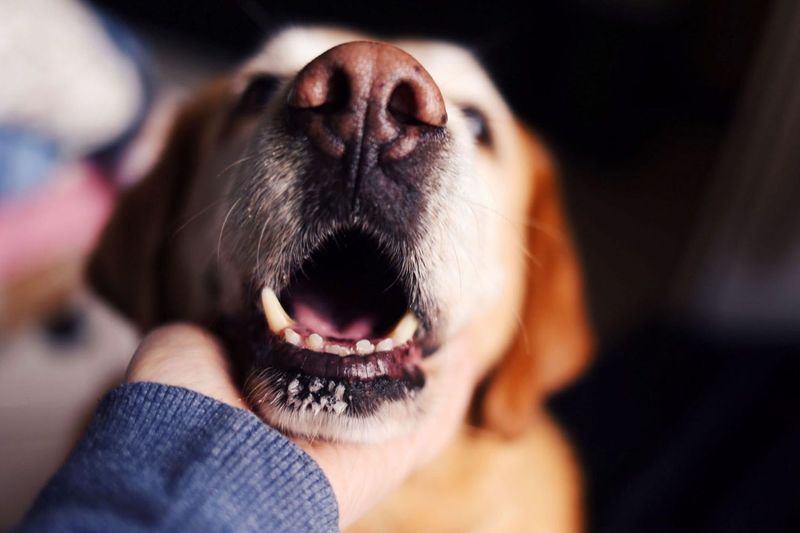11 Changes Veterinarians Would Never Ignore In Their Dogs

Dogs are more than just pets; they’re family. When something changes in their behavior or appearance, it can signal underlying health issues.
Veterinarians are trained to pick up on these signs and intervene before they escalate.
Here are 11 changes in dogs that veterinarians pay close attention to, ensuring the well-being of our furry friends.
1. Unusual Weight Loss

Sudden or unexplained weight loss in dogs can be alarming. It might point to underlying health issues like digestive disorders, kidney problems, or diabetes.
If your dog is shedding pounds without a change in diet or exercise, a visit to the vet is crucial. They can run tests to pinpoint the issue.
It’s not just about numbers on a scale – weight loss can affect energy levels, coat quality, and overall well-being. Pay attention to other symptoms like lethargy or increased thirst.
By catching weight loss early, vets can provide treatments to help your dog regain its health and vitality.
2. Persistent Cough

A lingering cough in your dog can be more than just a nuisance. It might indicate respiratory infections, heart disease, or even a collapsing trachea.
If your dog’s cough doesn’t clear up within a few days, it’s time to consult a vet. They will listen to your dog’s lungs, possibly recommend X-rays, and determine the best course of action.
Remember, early detection can prevent more serious complications down the line. Taking prompt action ensures your pup can breathe easy and get back to romping around happily.
3. Limping Or Lameness

Dogs love to play, but when they start limping, it’s a sign that something may be amiss. Limping can result from minor injuries, arthritis, or even ligament tears.
Vets assess the severity and recommend appropriate treatment, which might range from rest to surgery. It’s also essential to monitor any swelling or heat in the affected limb.
Timely intervention can prevent further damage and help your dog return to its playful self. Keep an eye out for any changes in their movement or reluctance to engage in activities they love.
4. Changes In Appetite

When a dog suddenly loses interest in food or becomes overly ravenous, it could signal health problems. Appetite changes might indicate dental issues, metabolic disorders, or gastrointestinal concerns.
Your vet will want to know about any accompanying symptoms, such as vomiting or diarrhea, to evaluate the situation effectively.
By addressing these issues promptly, you can ensure your dog’s nutritional needs are met and underlying conditions are treated. It’s vital to maintain their energy levels and overall health.
5. Excessive Thirst Or Urination

Increased thirst or frequent urination in dogs is a red flag for potential health issues like diabetes, kidney disease, or thyroid problems. Monitoring your dog’s water intake and bathroom habits can provide vital clues.
A vet can perform blood tests to determine the underlying cause and suggest necessary treatments. This could involve medication or dietary adjustments.
Addressing these symptoms early can prevent more severe health complications and keep your dog happy and hydrated. Watch for other signs like weight loss or lethargy accompanying these changes.
6. Unusual Lumps Or Bumps

Finding a new lump or bump on your dog can be worrisome. While some are harmless, others might be cancerous or indicate infections. It’s crucial to have any new growths checked by a vet.
They may recommend a biopsy to understand the nature of the lump. Early detection is key in managing potential health risks.
Regular checks and prompt action help ensure that any problematic lumps are treated effectively, safeguarding your dog’s health. Keep track of any changes in size or shape of the bumps over time.
7. Changes In Coat Or Skin

A dog’s coat and skin are indicators of its overall health. Changes like dryness, flakiness, or dullness can signal allergies, thyroid issues, or nutritional deficiencies.
Vets assess these changes to determine their cause and recommend suitable treatments, which might include dietary supplements or allergy management.
Keeping your dog’s skin healthy requires regular grooming and attention to their diet. Noticeable improvements often follow veterinary guidance and proper care, making your dog’s coat shine again.
8. Bad Breath

Dog breath shouldn’t be overwhelmingly unpleasant. Foul-smelling breath can indicate dental disease, oral infections, or even gastrointestinal problems.
Regular dental check-ups are crucial for maintaining oral health. Vets can clean teeth and treat any infections or plaque build-up that may be present.
Addressing bad breath promptly not only improves your dog’s comfort but also prevents more serious health issues. A healthy mouth means a happy dog, free from pain and discomfort.
9. Behavioral Changes

Sudden changes in behavior, such as aggression or anxiety, can be distressing. These shifts might be due to pain, neurological disorders, or environmental stresses.
Veterinarians can help identify the root cause, offering strategies for behavior modification or medication. Observing your dog’s behavior closely and noting any triggers is helpful.
Timely intervention ensures your dog remains happy and well-adjusted. It also improves the bond between you and your pet, fostering a harmonious home environment.
10. Persistent Itching Or Scratching

Constant scratching or itching in dogs can stem from allergies, parasites, or skin infections. It’s not just bothersome; it can lead to further skin damage or infections.
Vets can identify allergens or parasites causing the symptoms and recommend treatments like special shampoos or medications.
Prompt action provides relief and prevents secondary issues. Ensuring your dog’s comfort is paramount, allowing them to enjoy their environment without irritation.
11. Changes In Bathroom Habits

When dogs experience changes in their bathroom habits, it can indicate underlying health problems like urinary infections or digestive issues. Paying attention to frequency and consistency can offer insights.
Vets will often conduct tests to diagnose the problem accurately and suggest appropriate treatment plans.
Swift attention to these changes can prevent more serious health issues and ensure your dog remains comfortable and healthy. Observing their habits closely helps maintain their well-being and happiness.






